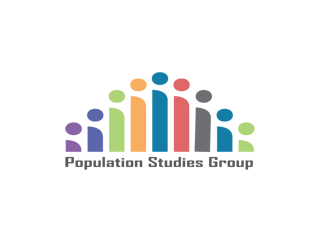Centres, groups and projects
Centres, groups and projects
With research grant income of more than £180 million per year, LSHTM is home to a large number of exciting and impactful research activities. We have a global presence with staff conducting research in more than 100 countries and we are deeply committed to working in collaboration with external partners. We are also home to four designated World Health Organization Collaborating Centres.
Featured research
Explore all Centres, groups and projects
E
The Ebola vaccine projects – EBOVAC1, EBOVAC2, EBODAC and EBOMAN – are a series of trials and associated projects which aim to assess a novel prime-boost preventive vaccine regimen against Ebola Virus Disease (EVD).
This project aims to unify and enhance the economic evaluation of health impacts from climate action by developing globally consistent, accessible guidelines.
A diverse team capitalising on research opportunities offered by routinely collected data, bringing methodological rigour to provide real-world evidence for important questions regarding human health.
Combining high quality reproducible parasite drug sensitivity tests and genomics to detect malaria drug resistance and support antimalarial drug policy in West Africa
The Erythema Nodosum Leprosum International STudy (ENLIST) group is an international partnership between seven countries focused on improving the understanding and treatment of Erythema nodosum leprosum (ENL).
The Entebbe Mother and Baby Study (EMaBS) is a unique birth cohort, on-going in Africa.
The Entebbe Mother and Baby Study (EMaBS) is a unique Ugandan birth cohort that began as a trial [ISRCTN32849447], designed to investigate the potential benefits of treating worm infections during pregnancy and early childhood. Today, EMaBS serves as a valuable resource for investigating how early life experiences influence health outcomes in tropical settings.
The Environment and Health Modelling Lab creates and applies cutting-edge statistical methods to understand the interactions between climate change, environment and human health.
The focus for the London School of Hygiene & Tropical Medicine’s work on water, sanitation, hygiene and health.
This project investigates how Brazil’s national programme for improving primary care access and quality has affected inequalities in the financing and delivery of primary care.
Effect of Remote Ischaemic Conditioning on clinical outcomes in ST-segment elevation myocardial infarction patients undergoing Primary Percutaneous Coronary Intervention (ERIC-PPCI).
Research question: how effective and cost-effective is emergency surgery for patients with common acute conditions presenting as emergency admissions to NHS hospitals.
This project worked collaboratively with researchers at LSHTM and academics and researchers in Yemen to estimate mortality in Yemen employing a range of novel methods.
ZIKAlliance is a multinational and multi-disciplinary research consortium comprised of 53 partners worldwide and coordinated by Inserm, the French National Institute of Health and Medical Research.
Developing disease, behavioural and economic models to assess whether and how to intervene to improve global health.
Piloting and evaluating a tool to help LSHTM and our partners establish strong foundations and equitable processes for our research partnerships.
African ecosystems are highly vulnerable to climate change, with implications for health. This project will build evidence for a Planetary Health approach to policy making in Sub Saharan Africa.

